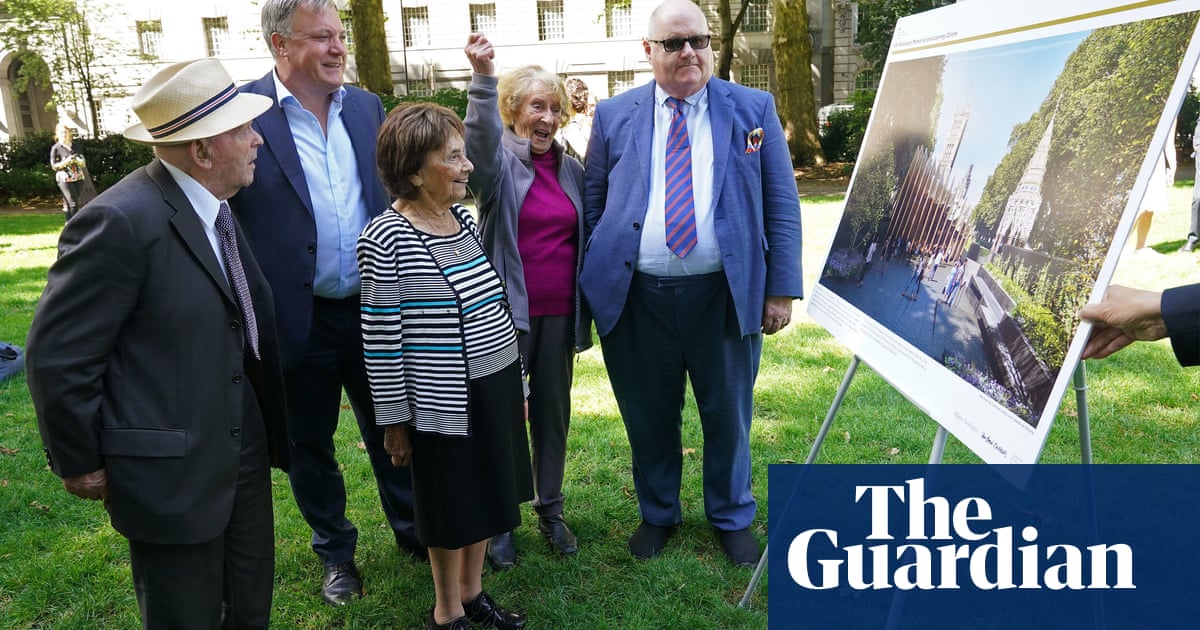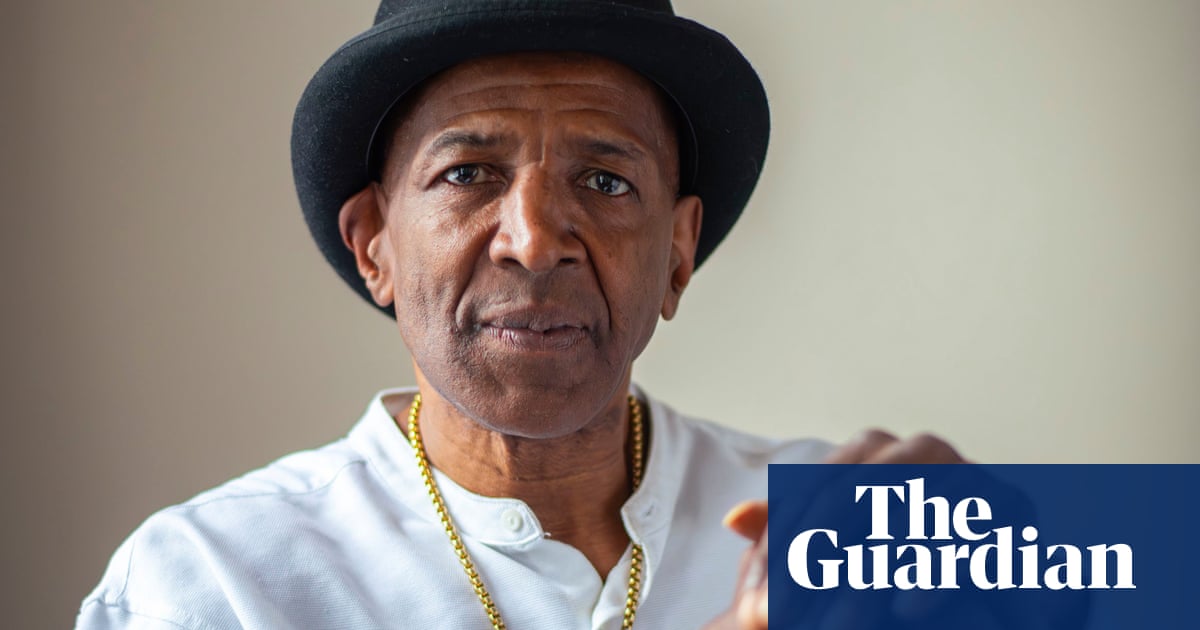
Lord Pickles, co-chair of the body overseeing a new £100m UK Holocaust memorial, said he is “desperate” to finally start building, given the dwindling number of survivors.
On Wednesday, the prime minister said he would legislate to work around a court ruling preventing the memorial and learning centre being erected on the Grade II listed Victoria Tower Gardens beside the Houses of Parliament. The scheme has been in development since 2014 but has been mired in controversy.
Pickles, who co-chairs the UK Holocaust Memorial Foundation with former Labour education secretary Ed Balls, said the death of the Auschwitz survivor Zigi Shipper last week on his 93rd birthday, only increased the urgency to start work, nine years after the plan was first proposed by David Cameron.
“Given the numbers now dying I really am desperate to begin construction,” he said. More than 100 survivors have died in the past two years, according to the Holocaust Memorial Day Trust.
Rishi Sunak’s move should clear the way for planning consent to be granted by the planning minister, Lucy Frazer, but opponents of the location, including Westminster city council, appear ready to renew objections.
The London Parks & Gardens campaign group urged MPs “to fulfil their generational responsibility to ensure Holocaust education in a way which also protects parks as places for everyone to reflect, relax and play”.
A spokesperson for Westminster council, whose planning committee previously voted against the scheme, said: “We await the details of any new scheme. Westminster city council has always been supportive of the principle of a Holocaust memorial centre in central London.”
The complex, which will include underground galleries, will “examine Britain’s reaction to the Holocaust”, said Pickles, as the pool of survivors able to directly tell their stories shrinks.
Last April, the Leeds resident Iby Knill, who was freed from Auschwitz in 1945, died at 98. Freddy Knoller, who was liberated from Bergen Belsen, died a year ago at 100. Harry Bibring, whose mother was murdered in Sobibor extermination camp, arrived in the UK on the Kindertransport but died aged 93 in 2019, just days after telling Sky News: “I don’t know whether I’ll live to see [the memorial] … and I hope nothing goes wrong so I can get a glance before I go.”
However, some Jewish leaders have opposed the idea. Jonathan Romain, rabbi of Maidenhead synagogue, said: “If the government is going to spend £100m, it’s better to put that into education”. He added that if a museum were built it would better be a “museum of genocide, or better, a museum of tolerance”.
Pickles said the displays would show the good and bad of Britain’s history with the Holocaust including contemporary antisemitism. The Jewish Community Security Trust charity this month reported a 22% increase in university-related antisemitic hate incidents in the past two academic years.
“All over Europe people are trying to rinse their history and trying to pretend the Holocaust was created just by the Nazis,” Pickles said. “We want to try and tell the truth. We will feature the Kindertransport, which was a really good thing, but we are also going to make clear that we didn’t let the parents in and as a result the majority of them died.”
“Several years ago, survivors were promised a Holocaust memorial in close proximity to the Houses of Parliament,” said Manfred Goldberg, 92, who as a teenager was held in concentration camps and sent on a death march before being liberated at Neustadt, Germany in May 1945. “I am a 92-year-old survivor who would be so grateful to be alive when this project, uniquely situated next to the mother of parliaments, comes to fruition.”
Sunak’s announcement, prior to Holocaust Memorial Day on Friday, came after a high-profile planning row. Westminster council opposed the scheme because of its impact on one of the few remaining green spaces next to the River Thames in central London, while others called for the complex to be sited elsewhere – for example at the Imperial War Museum or beside Tower Bridge.
Rowan Moore, the Observer architecture critic, stated that the proposal was too large for the site and the architecture, involving three different designers, risked being “cacophonous”. David Adjaye, Ron Arad and the Princess Diana memorial fountain landscape firm Gustafson Porter + Bowman, are all involved.
The government, which is providing most of the funding, “called in” the proposal, which overrode the council’s objections and triggered a public inquiry at which the scheme’s backers, include the TV personalities Natasha Kaplinsky and Robert Rinder, the archbishop of Canterbury, Justin Welby, and the Auschwitz survivor Lily Ebert gave evidence. Ebert, 99, spoke of the importance of remembering that “factory of death”, and her great-grandson, Dov Forman, 19, said it was “of vital importance that the stories of millions of others who have nobody to remember them are heard”.
Opposition to the location, but not the purpose, of the complex came from green spaces activists including London Garden Trust as well as figures including Lord Carlile, formerly the independent reviewer of terrorism legislation and the child of Jews born in prewar Poland, who warned of a “terrorism risk”.
“I give this warning with regret, but with total conviction,” he said. “This would be a threat to the public, and also a potential threat to parliament.”
After the planning inspector recommended approval, London Parks & Gardens secured a high court ruling that the park was legally protected from being built on by a 122-year old act of parliament. But Sunak told the Commons on Wednesday, in the presence of the survivor Arek Hersh, 94, that “this government will legislate to build the Holocaust memorial and learning centre next to parliament so that testimonies of survivors like Arek will be heard at the heart of our democracy by every generation to come”.












